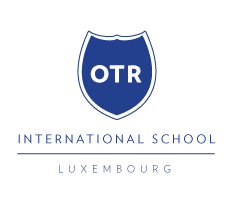ANTIBULLYING POLICY
MIDDLE YEARS PROGRAMME
Next Policy Review: September 2022
Our Mission
OTR International School provides quality education to pre-school, primary and lower secondary level pupils within an inspiring, challenging, multilingual and international environment by ensuring individual follow-up and the well-being of each student. Our students are encouraged to become active and lifelong learners who show empathy, compassion and respect and help to create a better world.
Our Vision
OTR International School seeks to create a community of lifelong learners who are confident, balanced, caring and inspired to thrive in their life and workplace. Our school accepts children from the age of three offering a multilingual education. Pupils develop their bilingualism every day with qualified teachers whose mother tongue corresponds to the language chosen. Our school puts more emphasis on students’ personal development by encouraging them to be more creative and prepare them for life by making practical connections between their studies and the real world. We aim to further incorporate in our school’s mission and vision and cultivate as many of the properties and values outlined in the IB learner profile.
KiVa Anti-bullying Program
Being bullied by peers at school is a threat to the healthy development of numerous children and youth all over the world. Based on what is known today, reducing bullying requires systematic ongoing efforts at the level of individual children, classrooms and the whole school.
KiVa is an innovative school-based antibullying program which has been developed using research on bullying and its mechanisms
KiVa was developed at the University of Turku in Finland, with funding from the Finnish Ministry of Education and Culture.
Prevention, intervention, and monitoring
KiVa is an evidence-based program developed to forestall bullying and to deal with effective cases of bullying. While preventing is crucial, effective action is also vital, as no hindrance efforts may ever let bullying disappear once and for all; therefore there need to be specific tools to be utilized once a case of bullying comes to surface. The third aspect of KiVa is a constant supervision of all potentially concerned situations within each specific school context and therefore all behavioral changes that may take place over time.
The main components of KiVa
KiVa includes both universal and indicated actions. The universal actions, such as the KiVa curriculum (subjects to work on), are directed at all students and focus mainly on preventing bullying. The indicated actions are to be used when a bullying case has emerged. They are targeted specifically to the children and adolescents who have been involved in bullying as perpetrators or victims, as well as to several classmates who are challenged to support the victim; the aim is to put an end to bullying.
Strong evidence of effectiveness
The effects of the KiVa antibullying program have been evaluated in numerous studies. In addition to the studies based on the data collected and analysed by the KiVa research group, also independent data collected by National Institute for Health and Welfare indicates that bullying and victimization have decreased in Finland since the broad rollout of the KiVa program.
KiVa is now being evaluated in several countries: the first international studies from the Netherlands, Estonia, Italy, and Wales are emerging, showing that KiVa is effective outside of Finland as well.
KiVa program won the European Crime Prevention Award in 2009, Social Policy Award for Best Article in 2012 and four National Awards in 2008, 2010, 2011 and 2012.
Parents` Guide
The parents’ guide is a part of the KiVa antibullying program and its aim is to offer parents information about bullying and what can be done at home and in school. Cooperation between parents and the school and a supportive home environment is essential in addressing bullying.
More information on http://www.kivaprogram.net/parents/
If bullying is suspected the KiVa team members will intervene and they will haveindividual discussion with the pupil not feeling at ease within the group and individual discussions with the other pupils involved.
After 1-2 weeks the Kiva team will have an individual follow-up talk with pupils involved and try to find if the situation has improved and bullying has stopped.
The KiVa team works in cooperation with the principal teacher and educational advisors and will guide the pupils to find positive solutions by themselves.
The KiVa team helps to develop empathy and positive solutions.
You can find more information about the program on http://www.kivaprogram.net
PROCEDURE TO FOLLOW WHEN BULLYING IS SUSPECTED:
KiVa intervention consists of:
1. Individual discussion with KiVa team member/s.
a) With the pupil not feeling at ease within the group:
The pupil describes the situation and the KiVa team member shows that s/he is there to help.
b) With the other pupils involved:
Pupil is asked what s/he could do to improve the situation where another pupil is not feeling at ease. The things which have been suggested and agreed on are noted.
After 1-2 weeks:
c) Kiva team will have an individual follow-up talk with pupils involved:
Has the situation changed for the better?
When the KiVa team starts individual discussions, it means that the KiVa team takes care of your child’s case. The KiVa team will guide the pupils to find positive solutions by themselves. There’s no need to be worried if you don’t have more detailed information about the case after the notification email. The KiVa procedure helps children to become autonomous in solving conflicts. The KiVa team works in cooperation with the class teacher. If however you have questions concerning the case of your child, you can contact the KiVa team directly at this email address: kiva@otrschool.lu
2. Individual discussion between the class teacher/principal teacher and class mates who could help the pupil in question.
If appropriate, the class teacher/principal teacher can ask if the pupil’s class mates could act in a positive way to help and support the pupil who is either feeling ill at ease or is being bullied.
The KiVa team doesn’t accuse or punish anyone, but helps to develop empathy and positive solutions.
